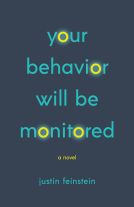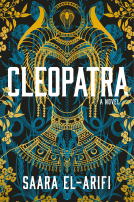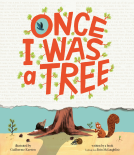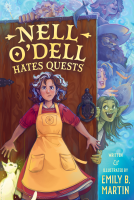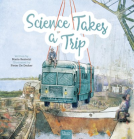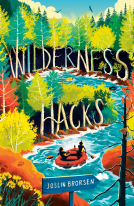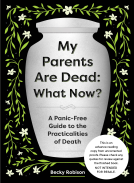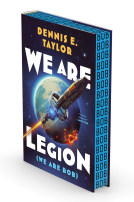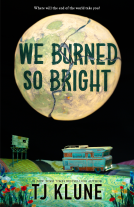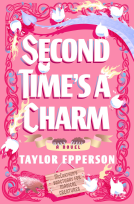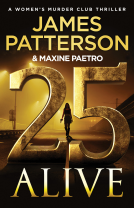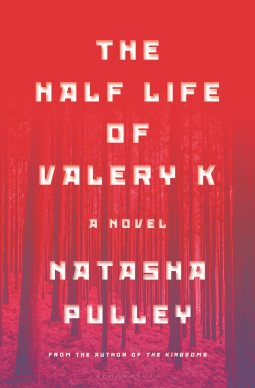
The Half Life of Valery K
THE TIMES HISTORICAL FICTION BOOK OF THE MONTH
by Natasha Pulley
This title was previously available on NetGalley and is now archived.
Send NetGalley books directly to your Kindle or Kindle app
1
To read on a Kindle or Kindle app, please add kindle@netgalley.com as an approved email address to receive files in your Amazon account. Click here for step-by-step instructions.
2
Also find your Kindle email address within your Amazon account, and enter it here.
Pub Date Jul 26 2022 | Archive Date May 31 2022
Bloomsbury USA | Bloomsbury Publishing
Talking about this book? Use #TheHalfLifeofValeryK #NetGalley. More hashtag tips!
Description
From the author of The Watchmaker of Filigree Street and The Kingdoms, an epic Cold War novel set in a mysterious town in Soviet Russia with a slow burn romance at its heart.
In 1963, in a Siberian prison, former nuclear specialist Valery Kolkhanov has mastered what it takes to survive: the right connections to the guards for access to food and cigarettes, the right pair of warm boots, and the right attitude toward the small pleasures of life so he won't go insane. But one day, all that changes: Valery's university mentor steps in and sweeps him from the frozen camp to a mysterious unnamed city. It houses a set of nuclear reactors, and surrounding it is a forest so damaged it looks like the trees have rusted from within.
In City 40, Valery is Dr. Kolkhanov once more, and he's expected to serve out his prison term studying the effect of radiation on local animals. His research is overseen by an imposing but surprisingly kind KGB officer, Shenkov, whose trust Valery feels a strong urge to win. But as Valery begins his work, he is struck by the questions his research raises-ones even Shenkov is afraid to answer. Why is there so much radiation in this area? What, exactly, is being hidden from the thousands who live in the town? And if he keeps looking for answers, will he live to serve out his sentence?
Based on real events in a surreal Soviet city, and told with bestselling author Natasha Pulley's inimitable style, The Half Life of Valery K is a sweeping new adventure for readers of Stuart Turton and Sarah Gailey.
Available Editions
| EDITION | Other Format |
| ISBN | 9781635573275 |
| PRICE | $28.00 (USD) |
| PAGES | 384 |
Average rating from 120 members
Featured Reviews
 Librarian 903469
Librarian 903469
At this point, I don't think Natasha Pulley is capable of writing a bad book. This one is definitely a departure from her previous works -- a purely historical novel (no hints of fantasy), and set in the mid-20th century (instead of the 19th). And oh my GOODNESS, I adored it. She writes her characters with such subtly & humanity, allowing them all the greyness in morality & motivation that people really have. It also made me so happy to see a neurodivergant character in a historical context -- while he's never labeled anything explicitly, fellow neurodivergant readers will be able to immediately see themselves in his thoughts & actions. And of course, like all Pulley's other novels, there is a beautifully subtle & heartfelt queer relationship at the center of things.
Highly, highly, HIGHLY recommend. I will be pre-ordering a copy & recommending a purchase for my library.
 Nan D, Librarian
Nan D, Librarian
In the past few years, Natasha Pulley has fast become one of my favourite authors and a standout voice in historical and queer fiction. Her stories are so deftly, brilliantly written, with impeccable research and a wry, witty voice that has compelled me to reread her novels again and again.
The Half Life of Valery K is a stunning work of fiction that I know will sit with me for a long time. While Pulley's books have never exactly been lighthearted fare, this is her bleakest novel to date, and one grounded firmly in history, without her usual trace of magic realism. The subject matter is by its nature disturbing--it is set alternatively in a Siberian gulag and a remote Russian city that is the site of a massive radioactive disaster and the source of horrific secret experimentation and government cover-ups, with the occasional detour through the scientific community of Nazi-era Germany--and there is not the same sense of optimism that is found in Pulley's other novels. Rather the book ends on a hopeful note that the main character, Valery, stubbornly seizes for himself, without a huge amount of faith that this wished-for future will actually come to pass (but just enough). Pulley doesn't shy away from the gruesome or horrific aspects of the subject matter or the novel's premise, but writes with enough restraint that the omitted details are almost worse, as my imagination filled in the blanks in such a way that it has stayed with me, much like the characters' weary resignation to the events unfolding around them, the way they are almost too tired to be horrified even though they are determined to do something about the conditions they have been forced to endure.
I also appreciate the gentleness with which Pulley writes queer characters and relationships. They don't overtake the story (not that I would mind if they did), but there is always a softness about them that speaks to a deeply romantic heart even in the midst of very troubling or difficult circumstances for the characters.
My two main criticisms are that I felt Pulley could have delved deeper into the characters' backstories in an effort to establish what makes them tick, as it were, and elaborate upon information only hinted at; and I would have liked to have seen more substance from the female characters. With regards to the latter, Pulley always writes female characters that have incredible intelligence, wit, and agency--arguably the most of anyone--and yet I often feel they are sidelined in favour of the male characters. I felt it most keenly in this novel, as I was desperate for more insight into and participation from the women in the book, rather than rather hand-wavey details about them alternately dooming or saving the day.
Nevertheless, I highly recommend this novel to anyone and know I will revisit it again once I have had time to digest it and sit with it awhile.
This book is one of my most anticipated reads of 2022, because <i>The Kingdoms</i> was my favorite book of 2021. And it exceeds my expectation in the best way.
<i>The Half Life of Valery K</i> reads like a historical sci-fi mystery/thriller, except that the science are all legitimate. And there's a queer romance underlying the adventure, which makes everything a hundred times happier and more heartbreaking at the same time. It is essentially a story about a middle-age Russian biochemist, who was locked up in a prison camp in Siberia. Then, one day in 1963, he was transferred to work in a city that was set up to study <i>something</i> related to radioactivity, which was his area of expertise. There, he slowly came to learn the truth behind the scientific project, while dealing with his trauma from his time as a prisoner and finding a foothold around the enigmatic KGB agent, who oversaw the research facility's security.
If you have read Natasha Pulley's work before, there are many familiar elements that you can expect, such as strong and stubborn female scientists and the question of how much you are willing to sacrifice for what you call the greater good. (And not to give anything away, there's a mention of Peru and octopuses.) Also, her writing style is beautiful and poignant as ever. If you haven't read her work before, this simply means that her prose constantly took my breath away, and I relished every moment of it.
Although there are a couple of familiar elements, there are also some refreshing things in this book. The most outstanding one to me is the fact that Valery, the protagonist and narrator, is a neurodivergent individual. It is very refreshing to look at things through his perspective, because when you think things should definitely go one way by common sense, he would question your thought process, and then your eyes are opened to a whole new chain of logics that are as flawless as yours, but you have been taught to stay blinded to. As the storyline deals a lot with government's secrets, where people get silenced and fed with lies, Valery, being the only one who refuses to see things in the "universal" perspective, becomes the perfect protagonist. At the same time, he is also a very relatable person. It's easy to sympathize with his pain, appreciate his courage, and feel overwhelming fondness at every moment that he is happy or excited. He's definitely one of my favorite protagonists ever.
The other aspect that makes this book stand out for me is the romance. If you have read Pulley's other books before, you can try to imagine reading those stories Mori's or Kite's POVs. The pining is extremely endearing and painful. I can't count how many times I screamed from all the tension. Overall, it's a very delicious reading experience that left my heart very warm and satisfied - an impressive feat, considering it's a story about cruelty of wars, but Pulley did it every time, and she has done it again.
a different sort of novel from natasha pulley, lacking the usual bit of fantasy pulley usually speckles about. instead she brings us to 1963 russia. a different novel in terms of setting and genre but it still contains all the heart and love the rest of pulleys works contain.
i thoroughly enjoyed this book. While it was a bit slow, i didn’t mind it really that much. the pacing felt nice and i was really able to get in touch with the characters. Valery, our main character is a scientist who’s just been pulled out of the gulag to serve the remainder of his sentence studying the effect of radiation on a town. He soon realizes he’s been brought into something much more dangerous then he first believed. As he and the elegant body guard Shenkov investigate the misleading information they’ve been given, all while forming a heartfelt connection with one another, they work toward figuring out what exactly is going on with the radiation levels in this town and why are they being lied too? i adored valery from the moment he stepped on the page and that feeling is still with me, a day later. him and shenkov are just so. i love them so much. their relationship developed so naturally and i was just so enamored with their connection and dynamic. I was quite confused when it came to the radiation and the science featured in the novel but i ended up finding it quite interesting. it’s something i’m not familiar with at all but pulley still made it engaging and included the information in a way that felt natural. All in all i really enjoyed this, it’s a little different then my usual reads but it still really made me feel. definitely read this if you enjoy history, subtle queerness and a cast of fascinating characters.
Thank you, Bloomsbury Publishing, for allowing me to read The Half Life of Valery K early!
Natasha Pulley is a power-house, a masterful storyteller and an exquisite writer. I read her previous works and none were subpar. I expected excellence and that is what I got. Natasha Pulley's style is so enthralling and The Half Life of Valery K is so fascinating. I devoured every single word as if I was starving.
 Reviewer 624519
Reviewer 624519
This book is everything I've come to expect in a Natasha Pulley novel--immersive historical fiction with a heartbreakingly lovely slow-burn romance! The writing is engaging, it sucked me in immediately, and I ended up staying up late just to finish reading. It's got a lot of darker themes, but I fell in love with the main characters and just couldn't put it down!
 Lily B, Reviewer
Lily B, Reviewer
Natasha Pulley has done it again! I honestly think this is one of the best books I've read from her yet. Although it didn't involve fantastical elements like clairvoyants or time slips, its focus on radiation science and the Soviet Union differentiated it from all of her other books. It was a terrifying read, as I didn't know who would survive until the end or what would occur. I especially loved the execution of morally grey characters in this read, as none of the main characters are entirely innocent players in the plot, whether it be from conducting human experimentation to killing others in the Gulags. She approaches the story from a humanistic perspective rather than a traditional storytelling perspective, and I think that's what makes her writing stand out from others.
Excellent Soviet-era historical fiction with a very compelling main character, this was a great read albeit quite depressing (especially in hindsight as Pulley makes it clear in the afterword that this is very heavily based in reality).
Valery, the protagonist, is a specialist in the effects of radioactive materials on biology and gets pulled from the gulag to work in the mysterious City 40, a city that has been cut off from the rest of the world in order to study the effects of radiation on a completely irradiated ecosystem. But there's something not quite right about the radioactivity heat map provided by the scientists/KGB overseeing the site, and Valery is determined to to figure out what's really going on and sound the alarm bells.
I really loved Valery as a protagonist and thought Pulley did a great job of creating a character with a troubled past trying to work through his own issues while also working through a rather large main plot. I was also a big fan of Shenkov and enjoyed watching the relationship between the two characters change and grow. There's also a great cast of side characters throughout the book.
The plot is well-paced throughout and even when there were chapters flashing-back in time I never felt like the plot wasn't moving along, and all of the major plot points were compelling. I also really liked the way Pulley tied things up at the end. She had also clearly done quite a lot of research into the setting and it felt very realistic while I was reading it.
I did have a couple of very minor nitpicks with word-choices a couple of times but overall it was a fantastic read and definitely makes me keen to go back and read Pulley's previously published worked.
Oh, and special shout-out to Albert the octopus for bringing some delightful levity to the book!
 Reviewer 743141
Reviewer 743141
One of Natasha Pulley's great strengths as a writer is her ability to immerse the reader in a perhaps unfamiliar setting and time with great specificity. This book is no exception. Her attention to detail is both helpful in becoming familiar with the world of the novel and rewarding when rereading.
As usual, I admire Pulley's grasp of pacing. New information is revealed in a smooth, unhurried way, backstory is filled in when appropriate without being intrusive, and the reader is trusted follow the plot and understand changing character dynamics and motivations without overly explicit exposition.
Finally, I'm a physicist, and every joke and aside about radiation units made me laugh.
This book kept me absorbed for the past two weeks as I read it slowly, appreciating and taking in every word of it. Natasha's writing here is incredible as always — her world-building is so immersive and atmospheric, and her characters so real, when the subject matter (radiation science and its effects) would otherwise seem unapproachable. I felt so attuned with Valery and his feelings and behaviors especially.
Thank you so much to NetGalley for providing me with an Advanced Reader's Copy of The Half Life of Valery K. I loved it and highly recommend it. I truly relished in the tension of this book and all of its mysteries.
This is only my second Natasha Pulley book--I read The Kingdoms earlier this year--and I can say pretty confidently that she's now one of my favorite authors. She weaves wonderful, complex stories around three-dimensional characters, and she writes beautifully.
This book follows Valery Kolkhanov, a nuclear scientist, from his time in Siberia to the mysterious City 40. This book is very much in Pulley's style: there's a bit of mystery, a bit of adventure, strong LGBT representation, very high stakes, and generally good people who do terrible things without guilt.
With everything going on with Russia's invasion of Ukraine, reading this book now felt timely.
And just a note: people are preemptively shelving this book as fantasy or speculative fiction. It's not. This is a pretty straightforward historical fiction book, and Pulley includes notes in the back grounding the book to real historical events.
 Librarian 865097
Librarian 865097
Biochemist and political prisoner Valery Kolkhanov is transferred from the Siberian gulag to City 40, an irradiated city, in order to serve the remainder of his sentence as a researcher. There he observes obvious signs of radiation poisoning in the environment and the population, but authorities insist the radiation levels are safe. Valery and Konstantin Shenkov, a KGB officer with a heart of gold, set out to investigate the truth behind the cover-up.
[Note: Natasha Pulley is my favorite author, so this review is entirely biased.]
In The Half Life of Valery K, Pulley trades her usual timey-whimey historical fantasy for historical fiction, but the results are no less breathtakingly brilliant. The plot begins simply, with a small observation about the trees, then builds piece by piece until readers' minds will be racing to put together the puzzle behind the severe radiation levels with Valery and Shenkov. The meticulously researched setting abounds in historical details and sensory thrills, from kerosene lamps to the biting cold of Russian winters to the ever-present tension of living in a surveillance state. In the hands of a more pedantic writer, the nuclear science behind radiation would be labyrinthine, but Pulley has a knack for explaining even the most complicated concepts in a clear, concise manner that even the most right-brained of us can follow. Her sparkling wit and dry humor are out in full force, and there are many surprisingly laugh-out-loud funny lines (I highlighted a *lot* of passages in this book). The gentle, slow-burn friendship-listing-towards-something-more between Valery and Shenkov simmers in the background and provides an oasis of tenderness in a story filled with doomed consequences. (This muted intimacy, I maintain, is infinitely superior to and more satisfying than anything the romance genre will ever be able to produce). A heaping dose of feminist fury rounds the novel out. Also, readers rejoice: there is an octopus.
The Half Life of Valery K is an utter triumph. I cannot wait until it's published so I can shove it into the hands of every historical fiction, science fiction, and general fiction reader I come across.
Readers who liked this book also liked:
Justin Feinstein
General Fiction (Adult), Humor & Satire, Sci Fi & Fantasy
Eoin McLaughlin, illustrated by Guilherme Karsten
Children's Fiction, Outdoors & Nature
Becky Robison
Business, Leadership, Finance, Parenting, Families, Relationships, Self-Help
Dennis E. Taylor
General Fiction (Adult), Humor & Satire, Sci Fi & Fantasy

